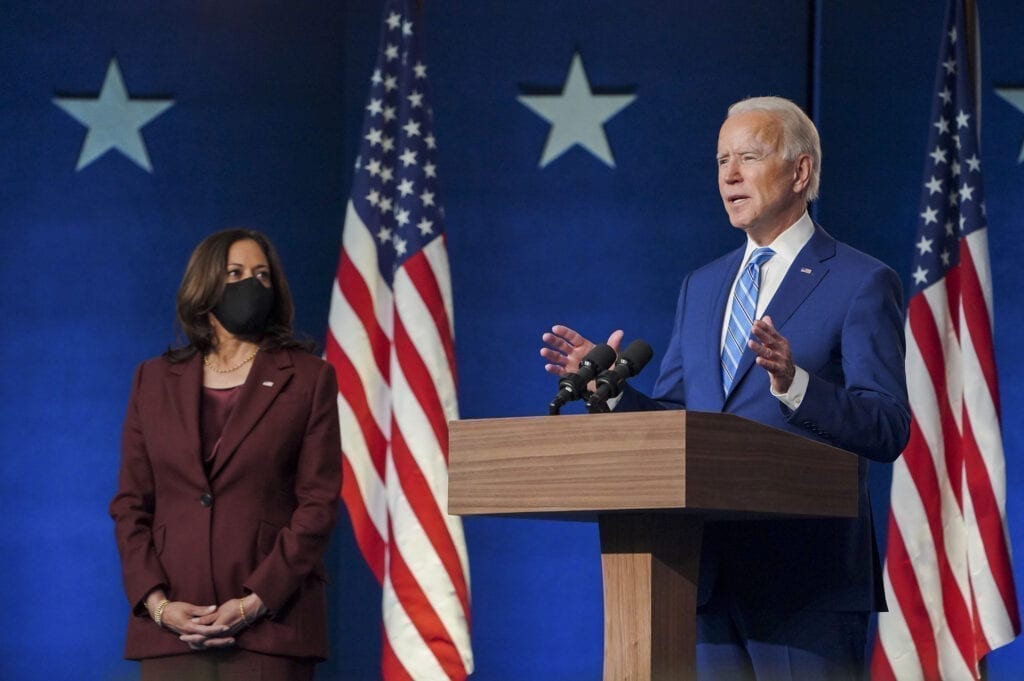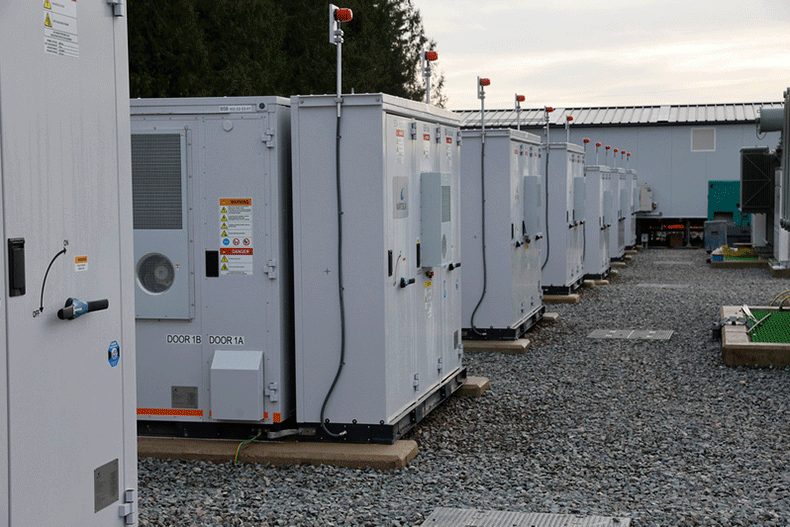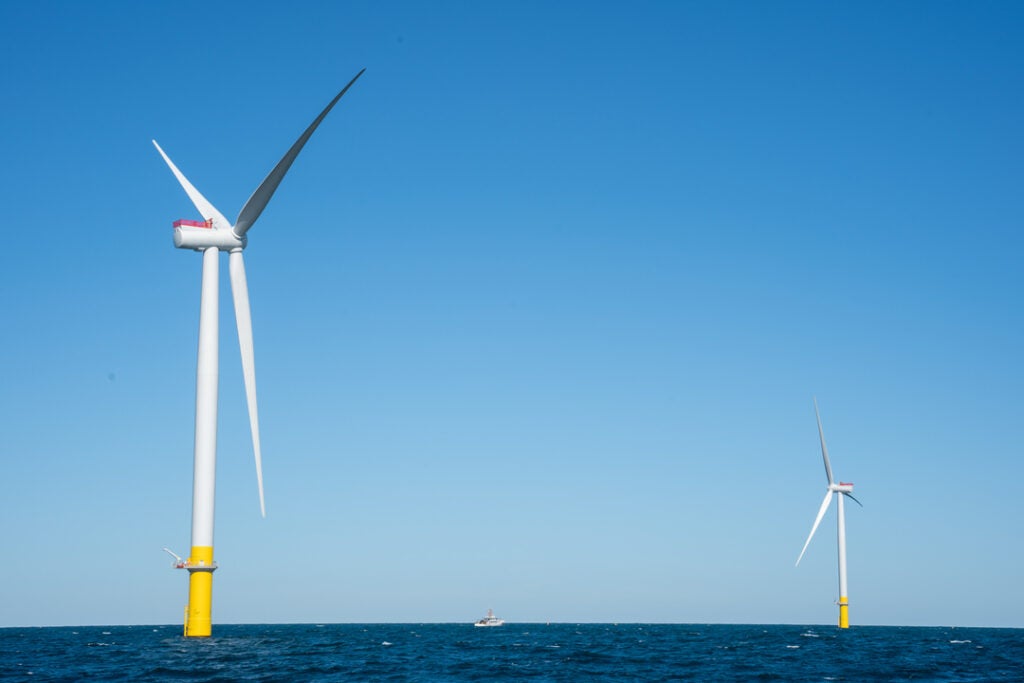President Biden has signed executive orders designed to move the U.S. to carbon neutrality by midcentury, part of a $2 trillion plan that would overhaul the nation’s electricity and transportation sectors. The president’s plan, outlined Jan. 27, focuses on climate change and includes a White House task force that would direct policies on greenhouse gas emissions.
Biden has said he wants to decarbonize the U.S. power sector by 2035. The latest executive orders, coming one week after Biden was inaugurated as the nation’s 46th president, are in keeping with the new administration’s promise to prioritize climate change and environmental initiatives. They also take aim at reversing the Trump administration’s policies designed to roll back federal efforts to limit regulations on carbon emissions.
“The stakes on climate change couldn’t be higher, it’s existential,” said John Kerry, the president’s climate envoy and a former presidential candidate. “2021 is going to be the year that makes up for the loss of the last four years.”
Today’s executive orders, while promising historic federal measures to address climate change, do not create permanent actions; they could be reversed by future administrations. Some analysts, noting the difficulty in establishing federal emissions regulations, have said any major changes impacting the power generation industry will certainly face legal challenges.
Addressing Lost Coal Jobs
The orders signed by Biden today include a focus on helping communities affected by pollution. They also address job losses in coal mining regions, hit hard by coal company bankruptcies amid a lack of demand for the fuel due to the closures of dozens of U.S. coal-fired units over the past several years.
The moves also bring the inclusion of climate science back to federal agencies, something that was diminished during the Trump administration. They also will impose a moratorium on new leasing for oil and gas production on federal lands.
Today’s action also establishes climate change as a national security threat. Along with formation of a White House task force to direct policies to reduce greenhouse gas emissions, it creates an initiative called Justice40 to track and ensure that 40% of federal climate investments go to disadvantaged communities.
“He’s not waiting to take action … because science is telling us we don’t have a moment to lose to fight,” said Gina McCarthy, the national climate adviser and former administrator of the U.S. Environmental Protection Agency, as she discussed Biden’s moves. “Just one week into his administration, President Biden is continuing to move us forward at the breadth and the pace that climate science demands.”
The administration also is creating the first Civilian Climate Corps, which will be focused on improving resiliency in communities nationwide. Today’s orders also include ratification of the Kigali Amendment to phase down hydrofluorocarbons, a potent greenhouse gas. The president also is reestablishing the President’s Council of Advisors on Science and Technology.
“Today’s executive order starts by saying it is the policy of this administration that climate considerations shall be an essential element of U.S. foreign policy and national security,” McCarthy said.
‘Climate Day’
Biden issued the orders on what the administration has dubbed “Climate Day.” Environmental advocates praised the president; most of the criticism of the plans came from the oil and gas industry.
“The signal from President Biden today is unmistakable: For the next four years, every day will be climate day,” Natural Resources Defense Council President Mitch Bernard said in a statement. “That will not only help us avoid a fate of ever-worsening extreme weather disasters, it will help us rebuild stronger in the face of the multiple crises gripping our nation, from the pandemic to racial injustice and the economy.”
The pause on oil and gas leasing brought swift reaction from the American Petroleum Institute (API), which has expressed concerns about a complete ban on fossil fuel exploration, particularly on the process known as hydraulic fracturing.
“This is a step backward for environmental progress and is nothing more than an import-oil policy that will weaken U.S. energy leadership, hamper the economic recovery and undermine national security,” said Mike Sommers, API president, in a statement. “Energy demand will continue to rise, especially as the economy recovers, and we can choose to produce that energy here in the United States or rely on foreign countries with lower environmental standards that are hostile to American interests.”
Other groups praised the president’s orders. Robert Dillon, executive director of the Energy Choice Coalition, a group dedicated to accelerating the modernization of the electricity sector by opening power generation and retail sales to true competition, in an email to POWER said, “The Energy Choice Coalition welcomes President Biden’s ambitious goal of transitioning the electricity sector to 100 percent clean energy within the next 15 years. We look forward to engaging with the new administration and Congress on how market reforms that empower consumers and encourage private investment can hasten the deployment of renewable energy and energy storage while minimizing the cost burden to ratepayers.”
Dillon continued: “President Biden’s decarbonization goals are aggressive and will require popular support to succeed. Consumers and the third-party retailers who serve them are key allies in the race to decarbonize the power system. As such, policymakers should avoid policies that inhibit consumers’ role in determining the energy supply mix. Competitive market reforms offer a bipartisan way to build popular support for national climate goals and unleash the power of dispatchable energy resources behind the meter for a more resilient and balanced system.”
Heather Zichal, CEO of the American Clean Power Association (ACP), in a statement to POWER said, “This is the whole-of-government approach to the climate crisis that is needed. President Biden’s actions today—creating a climate task force to set in motion a governmentwide action plan for reducing emissions, directing all federal agencies to consider climate in their decision making, driving federal procurement to renewable energy, targeting federal lands and water for clean energy development, and accelerating the permitting of clean energy and transmission projects—will help deliver on his twin pledges to simultaneously rebuild the U.S. economy and address the threat of climate change.”
U.S. Chamber Applauds, and Boos
The U.S. Chamber of Commerce came down on both sides of today’s actions, praising the moves on climate change while calling the moratorium on oil and gas leasing “bad policy.”
Marty Durbin, senior vice president of policy at the chamber, in a statement provided to POWER said, “The U.S. Chamber applauds President Biden’s ‘whole of government’ approach to combatting climate change. The impacts of climate change are far reaching and it will take smart policies across a wide spectrum of issues to achieve meaningful global emissions reductions while also supporting economic growth and job creation. This will also require the focus and attention of Congress. Ultimately, businesses must develop and deploy the technologies necessary to make meaningful progress on climate.
“However, the Administration’s move to impose an indefinite ban on new energy production on federal lands and waters is bad policy and counterproductive to the goals of supporting the economy and combatting climate change. Experts agree that the world will need oil and gas for decades, and that natural gas in particular is essential to meet emissions reductions goals and allow for the deployment of more renewable energy. Such a ban will also starve local communities of revenue that funds state and local governments and schools.”
Durbin added: “Limiting production of gas on federal lands will drive production to private lands, having a devastating effect on New Mexico, Colorado, the Gulf states and others, while limiting oil production on federal lands will simply push investment to foreign sources, harming our economic and national security in the process. Therefore, this ban will not reduce emissions—it will only weaken our economy.”
—Darrell Proctor is associate editor for POWER (@POWERmagazine).

















